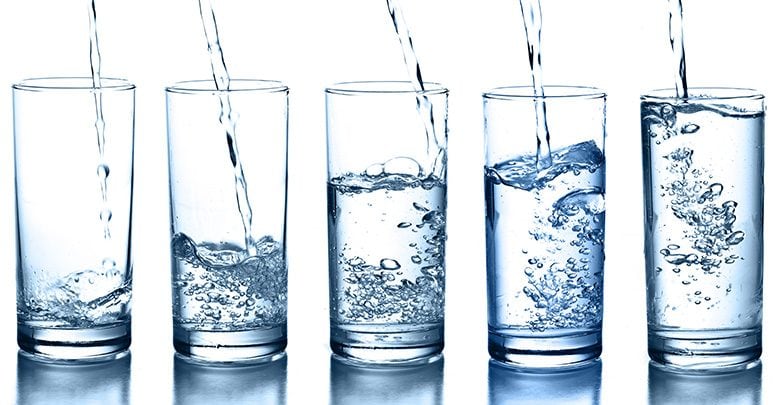How Drinking Plenty of Water Improves Your Diabetes Health
Water is vital to healthy living yet many of us are ‘perpetually dehydrated’ and vulnerable to severe dehydration/DKA from normal activities

An alarming number of Americans are “perpetually dehydrated” according to the Institute of Medicine. And if you’re one of them, chances are that dehydration is affecting your blood sugars and other more subtle aspects critical to your daily health.
Water is the transport mechanism for swallowing, digesting, and moving nutrients to and within cells, regulating body temperature, and flushing waste.
Let’s take a closer at how your water intake affects your blood sugar levels and overall health.
Not enough water = more concentrated blood
More than half of the human body is made up of water, according to research from the US Geological Survey (USGS).
When you don’t drink enough water as a person with diabetes, your blood becomes more concentrated which means there are more milligrams of glucose per deciliter of blood.
Daily Mild Dehydration
Daily mild dehydration can easily cause a slight increase in your blood sugar levels, but even 25 mg/dL higher than if you were normally hydrated can add up when it comes to your overall diabetes health and HbA1c goals.
Tip: Take a look at how much actual water you’re drinking every day.
Too often, we’re sipping coffee or diet soda all day long. While there’s plenty of water in both of those beverages, there are several reasons why they aren’t an even replacement for pure water.
- Coffee’s caffeine content, in particular, will easily increase insulin resistance if you’re drinking more than a couple of cups per day.
- And traditional diet sodas sweetened with aspartame are loaded with chemicals and found in research to contribute to insulin resistance.
On the other hand, unsweetened/caffeine-free tea and seltzer are decent ways to stay hydrated, but that doesn’t mean you should skip the clear stuff altogether.
If you don’t already have a decent water-drinking habit, find yourself a reusable container and vow to drink at least 1 full serving of water from the container each day. Eventually, you might find you’re craving the pure stuff instead of more coffee!
Sudden Severe Dehydration
Severe dehydration, however — like during an athletic event or watching the July 4th parade in 95-degree heat — can cause very sudden and significant spikes in your blood sugar, from 100 mg/dL to 250 mg/dL, for example.
This type of spike in your blood sugar can happen very easily and very quickly.
Tip: As people with diabetes taking insulin, we need to anticipate dehydration on those super hot summer days by drinking a lot more water than usual.
If you do find that you’ve suddenly spiked to 250 mg/dL and dehydration is likely the culprit, treat this high with your “correction factor” insulin dose along with…a few tall glasses of water!
It’s also important to keep an eye on your ketone levels when blood sugars spike this high. If your blood sugar doesn’t come down within 2 to 3 hours of taking a correction dose and drinking water, be sure to test your ketones and call your healthcare team if you test positive for moderate-to-large ketones.
Dehydration during severe stomach virus & vomiting
There’s no quicker way to become dehydrated than when you get a nasty stomach virus or flu and find yourself vomiting every last bit of water from your body.
A bout of sick-day puking in a person with type 1 diabetes can become a true crisis if it isn’t handled quickly.
A stomach bug can quickly and easily spike your blood sugar from 100 mg/dL to over 250 mg/dL because of the immediate dehydration it creates. If you can’t keep fluids down, your dehydration will escalate your ketone levels so severely that you could find yourself in DKA – diabetic ketoacidosis.
And with DKA comes very stubborn high blood sugars that extra insulin doses at home will not budge.
Tip: Don’t wait. If you have a stomach virus or flu that leaves you unable to consume water or food, you should visit the nearest emergency department to receive intravenous fluids.
Gong sooner than later means a much shorter visit — just a few hours strung up and then they’ll send you back home once your blood sugars and hydration levels are restabilized.
If you wait, and try to tough it out at home, your eventual trip to the ER will be much longer because they’ll be treating DKA, not just dehydration.
Water, water, water!
Give that body of yours more water! There’s just no way around it — the more you drink, the better you’ll feel. (And geez, more and more research continues to demonstrate waters impact on weight-loss efforts, too!)
Drinking at least 8 glasses (8 ounces) per day is the goal, but if you’re currently drinking none, just start small! One glass before every meal is a simple place to start.
The Harvard School of Public Health emphasizes that water is actually essential for many of your body’s daily functions — things we don’t often associate with water at all!
- Transporting nutrients and oxygen to all the cells in your body
- Flushing bacteria from your bladder through your urine
- Helping to digest meals properly
- Preventing constipation
- Maintaining healthy blood pressure and heartbeat
- Keeping your joints healthy
- General protection for your organs
- Maintaining a healthy body temperature
- Maintaining healthy electrolyte and sodium levels
If you have any of the following conditions, talk to your doctor about how much water you can safely drink:
- Any types of kidney disease
- Thyroid disease
- Any type of issues with your liver
- Some heart conditions
- Medications with a side-effect water retention
- Non-steroidal anti-inflammatory drugs (NSAIDs)
- Some types of antidepressants
- All opiate pain medications
You need water. Make drinking it a bigger priority in your life. Water will improve your blood sugars…and a whole lot more!